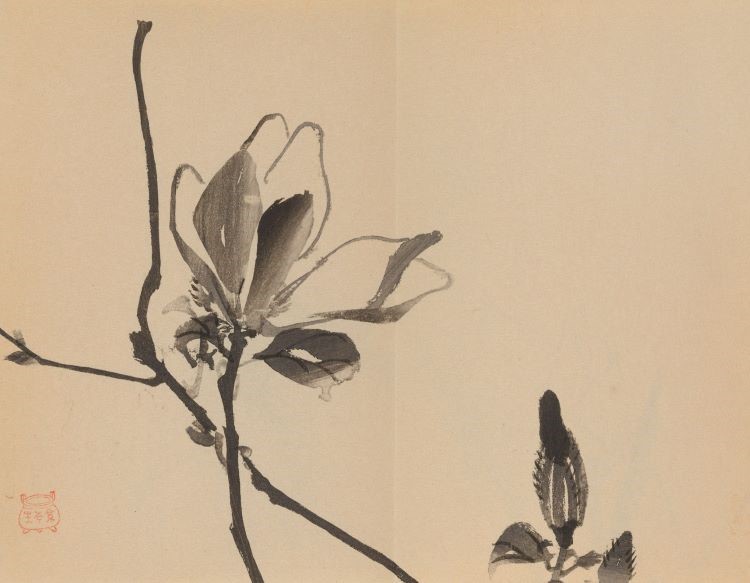Within Zen, there are different views depending on the schools and traditions regarding the use of the word meditation and its practice, as well as what is meant by the word mysticism in the Zen context. This plurality of views and corresponding practices is the richness of Buddhism and the reason why we should increasingly refer to Buddhism as "Buddhisms."
Zen has a vision of meditation and mysticism as: "practice and realization," which for Zen are One, in a "realistic mystical" vision.
Be patient toward all that is unresolved in your heart and...
try to love the questions themselves, like locked rooms and like books written
in a foreign language
Do not now seek the answers, which cannot be given you because you would not be able to live them.
And the point is to live everything. Live the questions now.
Perhaps you will then gradually, without noticing it, live along some distant day into the answer.
(Rainer Maria Rilke - from Letters to a Young Poet)
This beautiful poem, in the words "Perhaps you will then (...) live along" perhaps hints that it is not the mind, as we commonly understand it, that will find the answers? "All that is unresolved in your heart" for Buddhists, might be the Buddha Nature, an expression that in Zen attempts to approach the word Satori or "Original Nature," creating even more confusion for practitioners who think there is a fixed "Original" nature underlying everything, and a non-original nature of being and the universe, creating an unfavorable discrimination for living/being Original Nature.
The poem is a realization, not an understanding of the mind; for that, there is prose, which in many Buddhist schools is equivalent to teaching.
The poet, with poetry expressed in words, pauses, and silences, uses a poetic language that employs words to evoke feelings, emotions, and images, directing them towards a meaning and freeing us deeply from the ordinary subjective vision. Poetry is not for the "habitual, rational, and relative" mind but for that "something" that goes beyond the word itself.
On the other hand, prose is the habitual language of communication and information: there is literary prose, narrative; with reference to stylistic, social, and moral values: there is clear, polished, refined, elegant, flowery, and even pompous prose, as in certain Buddhist teachings or those of the masters. We can say that the essential teachings of the Buddha (certainly we should define which are considered essential) are, for Zen, to be considered "poetry" even if there is no lack of prose, which can be compared to teachings as commonly understood by the word "teaching."
In my view, we can perhaps compare poetry to mystical realization and prose to meditation. Two sides of the same coin, both practicable and with interdependent values, otherwise, they would be removed from the Buddhist vision, and by now from much of Western scientific knowledge of interdependence, and no less from that of cause and effect.
For this reason, Master Dōgen, one of the most important founding masters, or better said, renewers of Zen, is called a "realistic mystic," that is, he was capable, as perhaps all Buddhist practitioners should be, of living in a wholly "sacred" way the life in its entirety, which we divide into relative and absolute, beyond the discriminating opposites. The poetry of enlightenment lived in the prose of "ordinary" life and, naturally, in the content of Buddhist teachings.
Since the mind is free –
listening to the rain
falling from the gutter
the drops become
one with me.
(Dōgen)
If in Buddhism the mind is considered something broader and irreducible compared to the common mind produced by the brain's dimension with all its known or unknown potentials, and if the states of consciousness realized in Zen cannot be defined by the sum of our knowledge of the mind, it should follow that the experience of Satori enlightenment is not experientially available to the commonly ordinary mind or consciousness, nor through meditation that uses the mind.
As far as scientific practice is concerned, consciousness is still considered, at best, as an epiphenomenon. Similarly, if we had a science of consciousness, biochemical, physiological, and behavioral data might appear as epiphenomena because we do not even have a hint of how physical phenomena are linked to the "subjectively" manifested activity of consciousness. But then, can meditation that commonly addresses the ordinary mind make it take a step from the hundred-foot pole, as they say in Zen? Or must the practice be a practice of the "beyond," therefore a mystical practice beyond the mind? Which is then subsequently experienced by the mind.
Shizuka sa ya
iwa ni shimi iru
semi no koeSilence
penetrates the rock
a song of cicadas
(Basho)
Over the centuries, mystical experiences, in the form of both ecstasies and enlightenments, have been an important feature of the lives of numerous Buddhist monasteries in the East. But if mysticism is defined as it often is, as the experience of the union of the soul with a God, then clearly Zen and Buddhism in general are not mystical. Yet, in other ways, Zen seems profoundly mystical—more self-consciously mystical than other religions. Zen Buddhism places at its center a carefully calibrated and demanding contemplative discipline: zazen, which is not meditation, even though this word is commonly used for this non-practice.
Zen focuses the best efforts of its practice on the pursuit of a sudden awakening experience, not on the cleansing of the mind.
The body is the Bodhi tree
The mind is a bright mirror
Diligently keep it clean every day
So that dust does not settle on it
Common vision expressed by the master
Shen-hsiu (605-706)
From the beginning there is no Bodhi tree
Nor has there ever been a bright mirror
Buddha-nature is always pure and clear
Where could dust possibly settle?
Hui-neng (638-713)
The same master Chuang-Tzu had said, "If the mirror is truly bright, dust cannot adhere to it. If dust can adhere to it, how can it be said to be bright?" The daily cleaning of the mirror suggests gradualness; Hui-Neng's sharp response suggests a sudden awakening vision in Zen.
What happens is awakening, a shocking turning point that alters life. It offers a completely new way of seeing, thinking, feeling, acting, and being for our mind, which shifts from ordinary to becoming part of the absolute or One with it.
Without clinging to definitions but borrowing words to create "prose" rather than "poetry," we can say that in Zen, meditation and mystical experience are two different practices of the mind until Awakening/Enlightenment occurs, then they merge into one another. This is when Master Dōgen defines "Practice itself is enlightenment"; there is no division.
The Chan/Zen tradition typically does not refer to stages or levels of meditation. Its central teaching is that we are intrinsically already "awake"; our mind is originally without abode, fixations, or obsessions, and its nature is without divisions or stages. This forms the basis of the Chan/Zen view of sudden enlightenment. If the nature of our mind were not already free, it would imply that we could only become enlightened after practicing, for example, meditation, which is not the case in Zen. Therefore, in Zen, both the practice of zazen and koan practice, paradoxical questions, are not considered meditations in the classical sense but are themselves the experiencing of Buddhahood, as it is said in Buddhism. However, if we want to maintain the terms meditation and mystical experience, as the realization of the "beyond" of ordinary mind, then we can say that in Zen meditation and mystical experience are inseparable in the here and now and are not a process of cleaning or growth of the mind. Certainly, in this mystical-realistic realization, as mentioned earlier, there is a transformation of that relative mind which is no longer relative but the expression here and now of realization.
Consider a room that is naturally spacious. Whatever the organization of the room's furnishings, its intrinsic spaciousness will not be compromised. We can build walls to divide the room, but they are temporary. And whether we leave the room clean and orderly or messy (relative mind), it will not affect its natural spaciousness. Likewise, the mind is inherently spacious. Even though we may be trapped in our desires and aversions, our true nature is not influenced by those obsessions. We are intrinsically free.
In the Zen tradition, therefore, meditative practice does not aim to produce enlightenment because it is already present; the effort is to verify it, to become aware of it. We might ask ourselves, "Then why am I sitting here in zazen or why am I practicing koans?" Certainly, practice helps to clean the "furniture" in the "room," but not the room already naturally shining. By not attaching to your thoughts of realization or spiritual progress, you rearrange the furniture, and instead of fixating on chairs, tables, and so on, you see their spaciousness. Thus, you can let the furniture be as it is or rearrange it as you prefer, not for yourself but for the benefit of others in the room. In Zen, by practicing in this way, our lives gradually become fully integrated with ordinary mind yet rich in wisdom and compassion, and even traces of "enlightenment" fade away. We know how to offer ourselves to everyone, like a beacon, helping all those we encounter, responding to their needs without artifice because we are "realized ordinary mind," we are mystical realists.
Furu ike ya
kawazu tobi komu
mizo no otoOld pond
a frog jumps in
water's sound
(Basho)
The practice is much more than following a particular method or going through stages of a path. Practice is life and all its "furnishings". Practice helps us see the room and not get attached to the furniture. Enlightenment is not something special; it is the natural freedom of this moment, here and now, untainted by our inventions.
For example, Zen Master Huineng described zazen as "seeing clearly one's original nature within oneself".
The practice of meditation in Zen consists of becoming attentive. It helps us recognize what prevents us from being restored, and thus provides us with the method to deconstruct the obstacle.
Contrary to common understanding, zazen is not a mental practice. It's not just something you do with the mind, even though what you are doing is participating or focusing. It includes the mind but is not limited to it. In general Buddhism, people tend to identify with what arises and happens in their mind and develop "positive" mental states. However, zazen is not overly concerned with these things. Instead, zazen is simply sitting in presence to breathe, sitting in presence to the mind, sitting in presence to the body in the awakening of Buddha-mind which is each of us, and then you will live all positive states of consciousness to help all beings because free from the idea of an ego. As Zen Master Dogen Zenji wrote in the Shobogenzo: "Yuibutsu-yobutsu (“Only Buddha and Buddha”), The entire universe is the body of Dharma of the self."
The practices that emerge from Chan and Zen articulate an understanding stimulated not by a deep vision of the nature of ultimate truth, but rather by a new relationship with the ordinary objects of our daily life. Cleaning a garden, chopping wood, savoring a cup of tea are transformed from ordinary into a mystical experience of our ordinariness. When we eat, or wash the cup after having a cup of coffee, or while we gaze at the street lamp, we can practice these activities of realized ordinary life. They are concrete opportunities to engage with events considered by all as 'relative,' but which become realization, to live them under a completely different light—not meditation, but a direct experience of wholeness. Tathātā. To be totally oneself, inverting the present Buddha.
"Before enlightenment, I chopped wood and carried water...
after enlightenment, I chop wood and carry water!"



